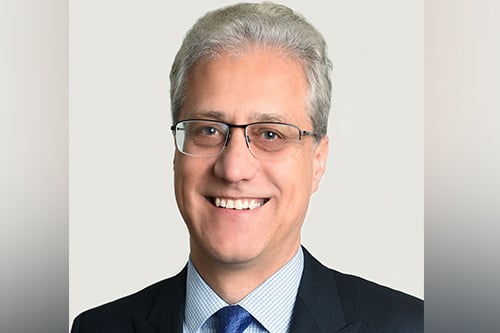Investment advisor speaks out on the virtues of the Pareto principle, tactical asset allocation, and knowing when to quit

Like many other professionals, John De Goey believes in the Pareto principle, otherwise known as the 80-20 rule: around 80% of an outcome is driven by 20% of the factors or activities that go into it. Individuals, teams, and organizations across the world apply that principle by identifying the efforts or practices they believe are most productive and prioritize them.
“Like anything in life, if you want to get the biggest payoffs, then you have to focus on those things that are likely to provide the best results,” says John De Goey, senior investment advisor and portfolio manager at Wellington-Altus Private Wealth. “But you don’t always know what those high-impact undertakings are right away.”
As powerful as the 80-20 rule is, people can get it wrong. For example, someone might think a certain activity has an 80% impact on their chances of success and fixate on it, even if time and evidence show it’s actually a low-productivity pursuit. A host of behavioural biases, including the sunk cost fallacy, can push people into throwing good money after bad into an investment.
“There’s a lot of evidence to show that when something isn’t working out, you have to be mature enough to quit,” De Goey says. “Unfortunately, people often have trouble accepting that what they’re focusing their energy on isn’t having the payoff they hoped it would.”
For many thrill-seeking investors, stock-picking is the key to achieving their dreams of wealth and financial freedom. But De Goey says a wealth of research – including a seminal study by Brinson, Hood, and Beebower on the determinants of portfolio performance – indicates a get-rich-slow approach to asset allocation is a more major driver of portfolio returns.
“People have to think about tactical asset allocation,” he adds. “Some might think they should hold and leave things as they are, but investors are better off paying attention to what’s going on and rebalancing their investment portfolios once in a while.”
In its 2022 Value of an Advisor Study, Russell Investments estimated that a Canadian advisor who started with a hypothetical balanced 60-40 portfolio of stocks and bonds in 2001 and left it alone, would have ended up with a growthier portfolio two decades later, with around 72% in equities and 28% in bonds by the end of 2021.
By actively rebalancing portfolios for their clients, advisors provide three important benefits to clients: they help retain the original asset allocation, therefore keeping it in line with the investor’s stated goals; they can potentially improve portfolio returns; and they help moderate the risk, or volatility of returns, within a portfolio. By Russell Investments’ estimates, that’s worth 0.20% of the 3.85% in added value that an advisor in Canada offers.
In De Goey’s experience, many of the financial pitfalls that clients fall into come from habits they might develop when left to their own devices. The responsibility of an advisor, he argues, is to help nudge clients towards making better macro-level decisions – not just with respect to investing, but also with other aspects of their finances.
“Part of an advisor’s job is to ask questions and encourage clients. ‘Are you actually saving for retirement or just talking about it? Have you set up a monthly savings plan?’” De Goey says.
That type of behavioural coaching is even more important for clients. By reminding clients of their long-term financial plans during tough times in the markets, advisors can help them avoid making emotional decisions and missing out on strong subsequent rebounds. According to Russell Investments, that accounts for 1.93% of a Canadian advisor’s added value.
“Good activities and habits add to the 80% of financial success. For clients, the pitfall is simply not doing them,” he says. “People already know they should be doing these things, but they need reminders from a professional and an expert.”



